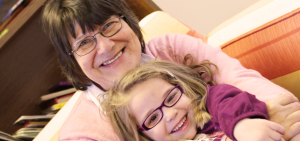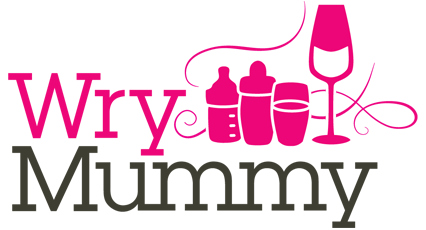 |
| Zoe and her grandmother Sylvia, who drives her on a 50-mile round trip every week for much-needed support at a RLSB drop-in centre |
Children with sight loss are twice as likely as fully sighted children to be bullied or picked on by other children
A report out today reveals that blind and partially sighted children are less confident, find it harder to make friends, are less physically active and are more likely to live in financial hardship.
Sight Impairment at 11 has been produced by The Royal London Society for Blind People (RLSB) and the Royal National Institute of Blind People in collaboration with NatCen Social Research. It highlights that children with sight impairment and an additional disability are particularly at risk of emotional difficulties, being socially isolated and doing poorly at school. More than one in four live below the poverty line.
This is an issue close to my heart as I used to volunteer at a local drop-in centre in London for vision impaired people and am a long-term befriender of Thomas*, who was 17 when I met him. Now I am pleased to call him my friend.
Happily, Thomas was (and is) confident, self-motivated and very sporty, but this was not the case for many of the young people whom I met at the centre, which was similar to those run by the RLSB. They lacked confidence, were struggling at school and found it hard to interact socially.
Without the right support many young people are at risk of missing out on the very things that make childhood so important – security, friendship and a sense of self confidence. However, the results of the research also demonstrate that with the right kinds of early intervention blind and partially sighted children can flourish. For example, vision impaired children benefit from workshops that build confidence and teach social skills for making friends.
So what can be done?
Both charities say that they are committed to working with local authorities to support the work they are doing with vision impaired young people and their families.
To help young blind children reach their potential, the RLSB provides support at an early age at their family drop-in centres, where they also assist parents how to bring up a blind child. Unfortunately these life-changing services are limited and they are hoping to open more in 2015, making support more accessible to families who need it.
More centres are desperately needed
Many of the young people I met as a volunteer had to travel an hour or more – by two or more buses – to get to the centre. The scarcity of such centres is an issue for Sylvia, pictured above, who drives her granddaughter Zoe on a 50 mile round trip each week to one of the RLSB’s family drop-in services, simply as there isn’t one closer to her.
The RLSB are currently running a Christmas appeal to enable them to open three more groups in London and the South East. But until that time, Sylvia says that these drop-in centres are “worth every mile to get there”.
If you would like to help, please:
Share this post to spread awareness, using the social media buttons below.
Twitter tags: @RLSBcharity @RNIB #SightLossAt11
Twitter tags: @RLSBcharity @RNIB #SightLossAt11




A brilliant post, I am running a guest post by Sylvia on my blog soon. There is not enough exposure on RLSB Charity and all their incredible work x
I couldn’t believe that statistic when I clicked on your blog. That is just dreadful. Great post raising much needed awareness. x
Appalling but brilliant, well done for taking the risk of addressing a serious issue. Essential reminder of the needs of too-often-invisible children. Thanks for donation link.
This is such a great post honey, I had no idea of those stats. Horrible. I feel so strongly about bullying and am glad you brought this situation to my attention. xxxxx
How did you tiffany jewellery uk sale escape, you’re not afraid of it. cheap suddenly felt a bit mean this woman, tiffany london sale began his dalliance with her cheap reach for the glass tiffany london sale turned and looked at the woman chuckled lightly toast, woman smiled, lotus mouth slightly open, shallow drinking a cup tiffany tiffany london sale A considerable cheap tiffany uk sale voice in cheap charm the ears, london sale of wine.